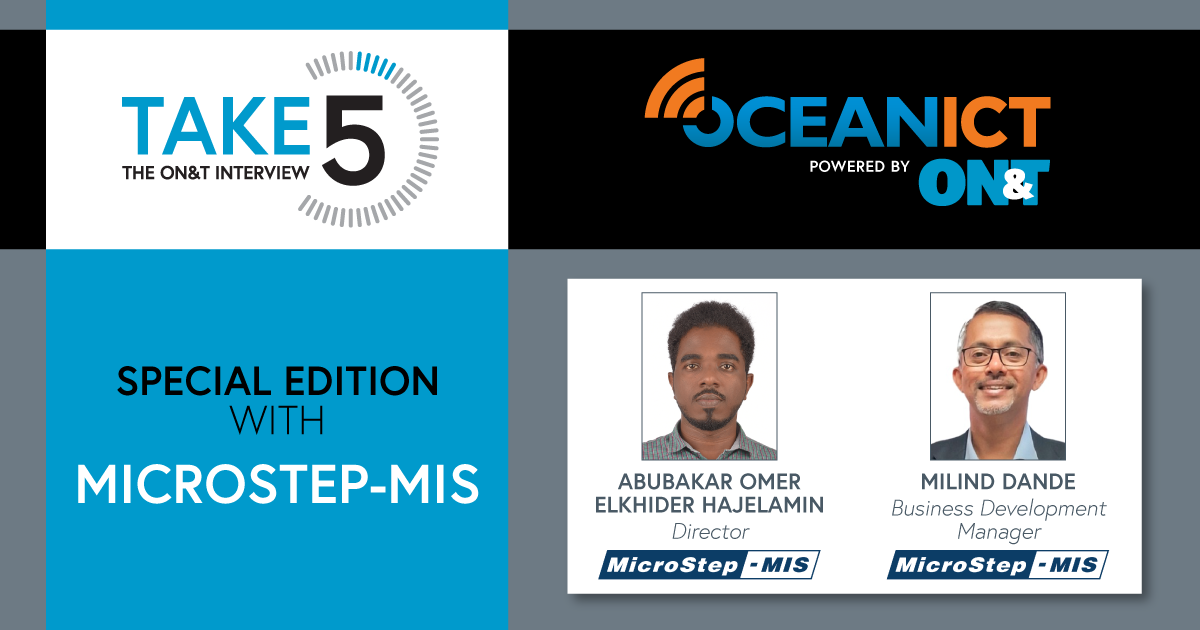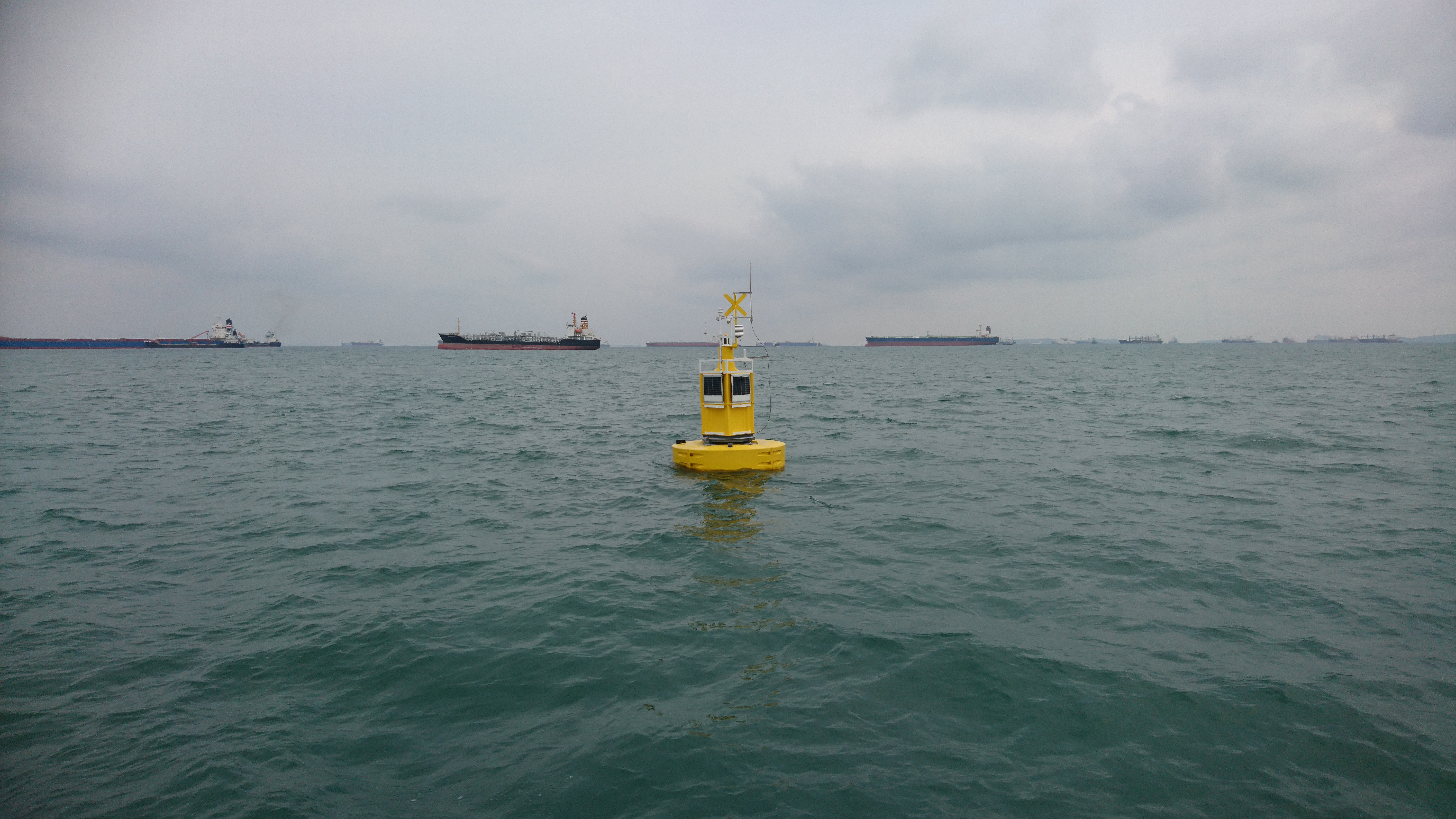
Should you be interested in participating in a future TAKE 5 interview, please get in touch at editor@oceannews.com.


In this TAKE 5, we are joined by Abubakar Omer Elkhider HajElamin, Director, MicroStep-MIS, and Milind Dande, Business Development Manager, MicroStep-MIS, to learn more about the integral part ocean monitoring platforms can play in collecting real-time data and providing early warning alerts.
What role does your company play in marine and ocean information and communication technology (ICT) space?
AH: MicroStep-MIS provides turnkey marine environment monitoring systems. As a manufacturer, system integrator, and service provider, our portfolio in this area includes developing marine and harbor monitoring systems, software and hardware development, database and collection systems, modeling and forecasting, and early warning systems. The entire cycle, from concept design to customization, configuration, site deployment, and long-term maintenance, is covered and addressed comprehensively with a complete team ranging from scientists and oceanographers to site technicians.
MD: MicroStep-MIS is a manufacturer of marine meteorological monitoring sensors & data loggers, real-time data collection software, modeling & data processing, and analytics- providing early warning alerts. We are also a hardware & software system integrator and a service provider.

A MicroStep-MIS buoy platform for air and water radiation monitoring. (Image credit: MicroStep-MIS)
How do you see breakthroughs in ICT capabilities shaping the evolution of the ocean industry?
AH: Site visits for troubleshooting as well as routine maintenance of marine and offshore stations need a lot of resources (e.g., chartering support vessels, helicopter journeys, special permissions, etc.); thus, improvement in reliable anti-fouling technologies for sensors in water, offshore anti-vandalism systems, robustness of power packs, and multi-mode communication layers in all weather conditions all contribute to a longer deployed system transmitting reliable data with fewer interventions.
MD: Data is the key to making correct decisions. The cost of acquiring data is very high in the marine field due to challenges in deployment, difficult access to systems for routine maintenance, data transmission challenges, and safe retrieval of equipment post-campaign.
With the improvement of technologies, high-quality, reliable data can be gathered and transmitted in near real time via satellites. Early warnings of tsunamis, storms, sea state, oil spills, and pollution incidents can be flagged and closely monitored and attended to.
Are there any recent or upcoming launches/projects/milestones/announcements you want to share with us?
AH: MicroStep-MIS has recently completed some flagship offshore marine monitoring projects in the Middle East in both the Red Sea and Arabian Gulf. We are privileged to have a Center of Excellence in Dubai focusing on marine activities. Due to the challenging marine environmental conditions in the Middle East, it is a great testing laboratory for MicroStep-MIS products and solutions. Monitoring radiation in air and water using buoy-based floating stations is a feather in the cap for MicroStep-MIS.
MD: MicroStep-MIS marked its 30-year anniversary in 2023. We have been involved in some highly complex marine monitoring network projects in Southeast Asia and the Middle East, where specialized sensors such as gamma radiation monitoring probes for air and water monitoring have been deployed. Based on market feedback and customer demands, we have developed buoy impact sensors and anti-vandalism packages for added asset protection of remote floating stations. We have a few other value-added features currently under development.
Part of the MicroStep-MIS portfolio includes the development of marine and harbor monitoring systems. (Image credit: MicroStep-MIS)
What are you looking forward to most about Oceanology International 2024?
AH: With 30 years of experience in business and an in-house design and development team, we are available to collaborate with both users and business partners to support their project needs of configuration, customization, and software demands.
MD: MicroStep-MIS has recently reorganized our marine core team, and we are full of enthusiasm to share our expertise, learn from other market leaders, and explore new technologies.
The future of ocean-based ICT hinges on…
AH: The future of ocean-based ICT hinges on the pooling of resources, efficient use of existing assets, and sharing of scientific and research data for the sake of the environment and sustainability.
MD: The success of ocean-based ICT in the future depends on collaboration among all stakeholders, including designers, integrators, users, and decision-makers. The true value of information lies in its shared use for the common good, as we have only one environment.
MicroStep-MIS will be exhibiting in the Oceanology International 2024 Ocean ICT Pavilion—powered by ON&T Magazine. You can find them at the Ocean ICT pavilion in Q100 on the Oceanology floor to chat more about the ICT solutions for the ocean industry.

Ocean News & Technology
is a publication of TSC Strategic
8502 SW Kansas Ave
Stuart, FL 34997
info@tscpublishing.com